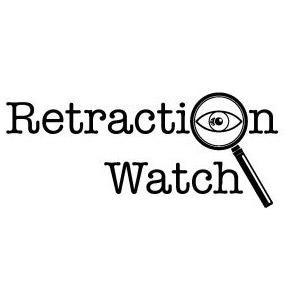Dear Retraction Watch reader:
Sometime this week or early next week, we will publish our 6,000th post. That means we’ve averaged nearly 500 per year since we launched a bit more than 12 years ago.
Wow.
And yet that’s not nearly all we do here at Retraction Watch. We — and by that I mean our researcher Alison Abritis and a small but very merry band of freelancers — maintain the most comprehensive database of retractions available. That database, which at last count contains more than 37,000 retractions, is now used by three leading reference managers — EndNote, Papers, and Zotero — to power their retraction alerts, and has been the basis of scores of scholarly papers.
Year: 2022
‘Liberals lecture, conservatives communicate’ paper gets lengthy expression of concern
An article from 2019 that caught some media buzz – including from the New York Times – for its analysis of political speeches now bears an expression of concern that’s almost as long as the original paper.
In “Liberals lecture, conservatives communicate: Analyzing complexity and ideology in 381,609 political speeches,” published in PLOS ONE, the authors concluded that “speakers from culturally liberal parties use more complex language than speakers from culturally conservative parties,” as they stated in their abstract.
But after reading the article, linguist Joe McVeigh, a university teacher at the University of Jyväskylä in Finland, wrote an online comment on the article detailing “several fundamental and critical flaws in its methodology.” A key issue: applying the Flesh-Kincaid test, which was developed for assessing the readability of a written text, to political speeches. As McVeigh told us:
Continue reading ‘Liberals lecture, conservatives communicate’ paper gets lengthy expression of concernWeekend reads: What should happen to a paper by Theranos?; Diederik Stapel continues to be cited; a scientist accused of hiding China ties wins $2 million

Would you consider a donation to support Weekend Reads, and our daily work? Thanks in advance.
The week at Retraction Watch featured:
- Scientist goes to court to clear his name after fake peer review retractions
- Science paper on sense of taste gets expression of concern as university investigates
- Biotech exec stole an image and reused others while in academia, US federal watchdog says
Our list of retracted or withdrawn COVID-19 papers is up to 276. There are more than 37,000 retractions in our database — which powers retraction alerts in EndNote, LibKey, Papers, and Zotero. And have you seen our leaderboard of authors with the most retractions lately — or our list of top 10 most highly cited retracted papers?
Here’s what was happening elsewhere (some of these items may be paywalled, metered access, or require free registration to read):
Continue reading Weekend reads: What should happen to a paper by Theranos?; Diederik Stapel continues to be cited; a scientist accused of hiding China ties wins $2 millionBiotech exec stole an image and reused others while in academia, US federal watchdog says
A pioneer in the field of exosome biology engaged in research misconduct by reusing images he had falsely relabeled in two published papers and several grant applications, according to a U.S. government research watchdog.
The case goes back several years, as the scientist’s former institution seems to have been investigating his work for nearly a decade.
Douglas Taylor, who in the 1970s discovered that tumor cells release exosomes, “used falsely labeled images to falsely report data in figures, and in one finding, intentionally, knowingly, or recklessly plagiarized, reused, and falsely labeled an image to falsely report data in a figure,” according to the published finding from the U.S. Office of Research Integrity (ORI).
Continue reading Biotech exec stole an image and reused others while in academia, US federal watchdog saysScience paper on sense of taste gets expression of concern as university investigates
Science has published an expression of concern for a recent article on a receptor for bitter taste while the authors’ institution investigates “potential discrepancies” with a figure.
The article, “Structural basis for strychnine activation of human bitter taste receptor TAS2R46,” was published in September of this year.
According to the abstract:
Continue reading Science paper on sense of taste gets expression of concern as university investigatesScientist goes to court to clear his name after fake peer review retractions
A scientist who lost 11 papers for fake peer review and other reasons went to court to pin the misconduct on a coauthor – and received a favorable judgment.
The retractions for Aram Mokarizadeh, a biomedical researcher previously affiliated with the Kurdistan University of Medical Sciences in Iran, were part of a batch of 58 papers in seven journals that Springer and BioMed Central pulled in 2016 after an investigation found “evidence of plagiarism, peer review and authorship manipulation, suggestive of attempts to subvert the peer review and publication system to inappropriately obtain or allocate authorship.”
After our story on the case appeared, Mokarizadeh told us that a coauthor was “responsible for all problems associated with retraction,” and that he had brought a case to court in Iran to prove it.
Continue reading Scientist goes to court to clear his name after fake peer review retractionsWeekend reads: ‘Illegal practices in palaeontology’; ‘a fake badge of integrity’; researcher jailed

Would you consider a donation to support Weekend Reads, and our daily work? Thanks in advance.
The week at Retraction Watch featured:
- Journal editor in chief who published controversial Covid papers resigns
- Psychiatrist in Canada faked brain imaging data in grant application, U.S. federal watchdog says
- Why misconduct could keep scientists from earning Highly Cited Researcher designations, and how our database plays a part
- BMJ says it’s “an ongoing effort” to find articles by plagiarizing concussion researcher Paul McCrory
- Another ‘Majorana’ particle paper retracted, this time from Science
- Mathematician requests two retractions for “subtle inaccuracies”
Our list of retracted or withdrawn COVID-19 papers is up to 270. There are more than 36,000 retractions in our database — which powers retraction alerts in EndNote, LibKey, Papers, and Zotero. And have you seen our leaderboard of authors with the most retractions lately — or our list of top 10 most highly cited retracted papers?
Here’s what was happening elsewhere (some of these items may be paywalled, metered access, or require free registration to read):
Continue reading Weekend reads: ‘Illegal practices in palaeontology’; ‘a fake badge of integrity’; researcher jailedMathematician requests two retractions for “subtle inaccuracies”
A mathematician has requested the retraction of two recently published articles “claiming proofs of big results in number theory,” as one observer put it.
After publication, the author said he “found some subtle inaccuracies” in the work.
The editor-in-chief of the mathematics journal Studia Logica, where the papers were published, posted a notice to the publication’s website weeks ago stating that it had retracted the two articles.
But the online versions of the papers still show no signs of having been retracted, as the editors wait on their publisher, Springer Nature, to process the retractions.
Continue reading Mathematician requests two retractions for “subtle inaccuracies”Another ‘Majorana’ particle paper retracted, this time from Science
Nearly a year after marking a paper on the elusive “Majorana” particle with an expression of concern, and almost three years after publishing a critique of its reproducibility, Science has retracted the article due to “serious irregularities and discrepancies” in the data.
A few papers about Majorana particles, which would be useful in quantum computing if scientists could indeed produce and detect them, have been retracted, flagged with expressions of concern, or otherwise proven difficult to reproduce.
The latest article to be retracted, “Chiral Majorana fermion modes in a quantum anomalous Hall insula- tor–superconductor structure,” has been cited more than 400 times since it was published in 2017, according to Clarivate’s Web of Science. About 10 percent of those citations have come since Science’s editors published their expression of concern last December.
The retraction notice states:
Continue reading Another ‘Majorana’ particle paper retracted, this time from ScienceBMJ says it’s “an ongoing effort” to find articles by plagiarizing concussion researcher Paul McCrory
Weeks after the British Medical Journal corrected a press release about nine retractions and dozens of expressions of concern to mark articles by a prominent concussion expert, a spokesperson for the journal told us it’s still “an ongoing effort” to identify all the articles on which the expert is the sole author.
The concussion researcher, Paul McCrory, was editor in chief of the British Journal of Sports Medicine, published by the BMJ, from 2001-2008, and published many editorials on which he was the only listed author. McCrory also chaired the influential Concussion in Sport Group, was involved in drafting consensus statements on concussion in sports, and consulted with leagues.
Ten of those articles, however, have been retracted this year for plagiarism, recycling his own work, and misrepresenting a reference.
In comments to us, his only public statements to date about the matter, McCrory acknowledged some of the plagiarism as unintentional “errors,” and offered “my sincere and humble apologies.” He no longer chairs the Concussion in Sport Group, and the Australian Football League has critically reviewed his work for the league, the Guardian Australia reported.
Continue reading BMJ says it’s “an ongoing effort” to find articles by plagiarizing concussion researcher Paul McCrory





